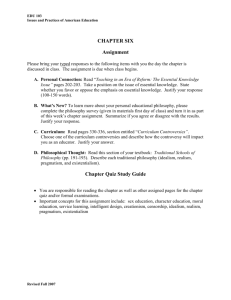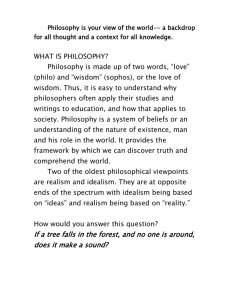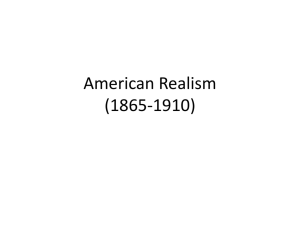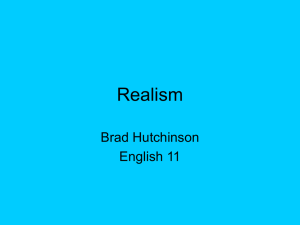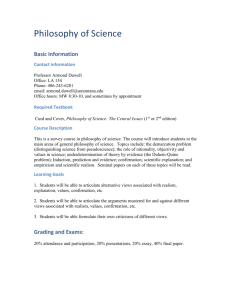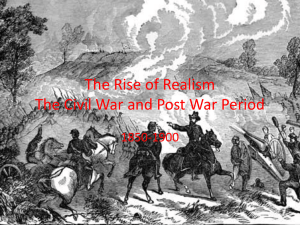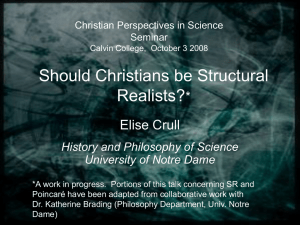The Liberation Philosophy of Ignacio Ellacuría
advertisement
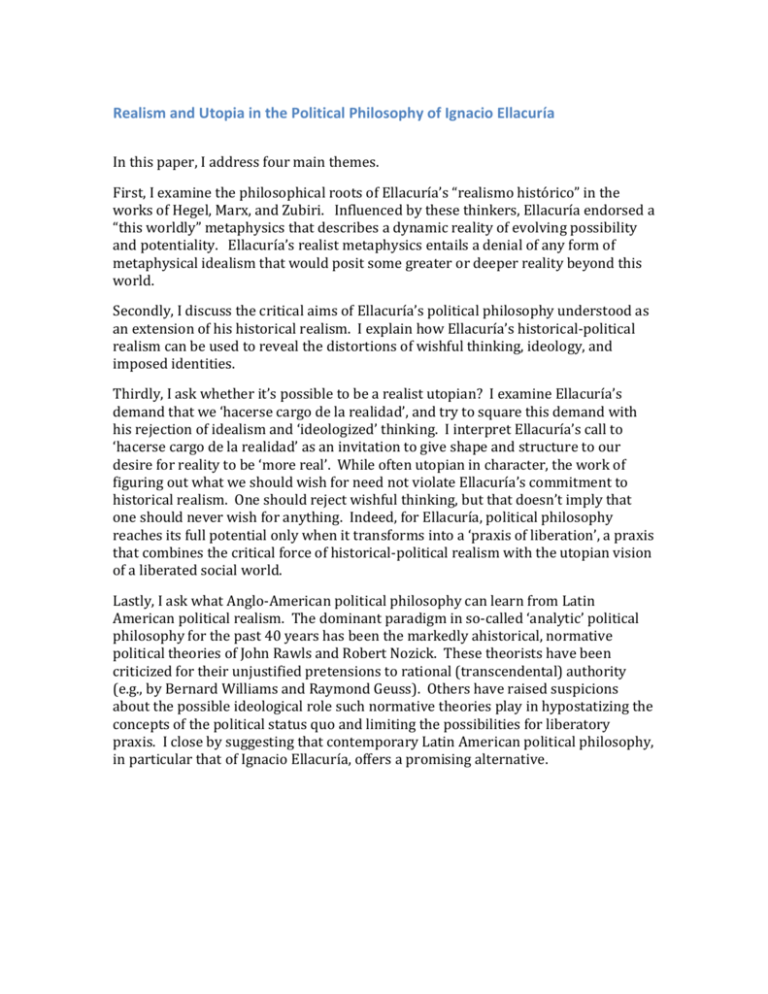
Realism and Utopia in the Political Philosophy of Ignacio Ellacuría In this paper, I address four main themes. First, I examine the philosophical roots of Ellacuría’s “realismo histórico” in the works of Hegel, Marx, and Zubiri. Influenced by these thinkers, Ellacuría endorsed a “this worldly” metaphysics that describes a dynamic reality of evolving possibility and potentiality. Ellacuría’s realist metaphysics entails a denial of any form of metaphysical idealism that would posit some greater or deeper reality beyond this world. Secondly, I discuss the critical aims of Ellacuría’s political philosophy understood as an extension of his historical realism. I explain how Ellacuría’s historical-political realism can be used to reveal the distortions of wishful thinking, ideology, and imposed identities. Thirdly, I ask whether it’s possible to be a realist utopian? I examine Ellacuría’s demand that we ‘hacerse cargo de la realidad’, and try to square this demand with his rejection of idealism and ‘ideologized’ thinking. I interpret Ellacuría’s call to ‘hacerse cargo de la realidad’ as an invitation to give shape and structure to our desire for reality to be ‘more real’. While often utopian in character, the work of figuring out what we should wish for need not violate Ellacuría’s commitment to historical realism. One should reject wishful thinking, but that doesn’t imply that one should never wish for anything. Indeed, for Ellacuría, political philosophy reaches its full potential only when it transforms into a ‘praxis of liberation’, a praxis that combines the critical force of historical-political realism with the utopian vision of a liberated social world. Lastly, I ask what Anglo-American political philosophy can learn from Latin American political realism. The dominant paradigm in so-called ‘analytic’ political philosophy for the past 40 years has been the markedly ahistorical, normative political theories of John Rawls and Robert Nozick. These theorists have been criticized for their unjustified pretensions to rational (transcendental) authority (e.g., by Bernard Williams and Raymond Geuss). Others have raised suspicions about the possible ideological role such normative theories play in hypostatizing the concepts of the political status quo and limiting the possibilities for liberatory praxis. I close by suggesting that contemporary Latin American political philosophy, in particular that of Ignacio Ellacuría, offers a promising alternative.
